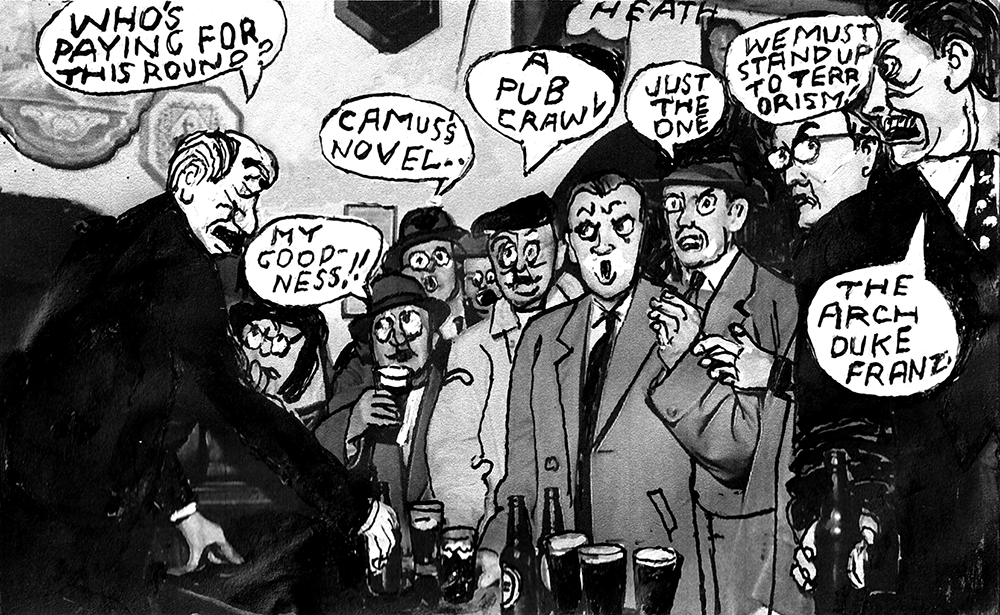‘There are two things that I can simply not tolerate: feminists and margarine’.
This is a quote from the novel Butter by Japanese writer Asako Yuzuki, which was published in translation last month to great acclaim. It’s billed as ‘a novel of food and murder’, inspired by the true story of a gourmet chef/serial killer and the journalist intent on cracking her case. It sounds gruesome but has plenty of descriptions of ‘scrumptious food’ apparently. I’m tempted to give it a go.
What is it about these oriental offerings that has bookworms so enthralled?
As are many others it seems. Butter is just the latest in a string of Japanese novels claiming prime display space in UK bookshops. To quote a few examples: Before the Coffee Gets Cold (Toshikazu Kawaguchi); Bullet Train (Isako Kotaro); Ms Ice Sandwich (Mieko Kawakami); The Woman in the Purple Skirt (Natsuko Imamura); Days at the Morisaki Bookshop (Satoshi Yagisawa); Convenience Store Woman (Sayaka Murata); The Kamogawa Food Detectives (Hisashi Kashiwai), and now Butter. According to a Guardian article, a quarter of the two million translated novels sold in the UK last year were Japanese. And that’s not including manga.
Why the sudden interest? The Guardian cited Brexit (yawn) as a driver of sales of translated fiction amongst the young (youthful despair at Britain’s nativist turn plus the assumption that Brexit voters don’t read presumably). But even if there were anything in that rather insulting idea, it wouldn’t explain the particular appeal of Japanese fiction. What is it about these oriental offerings that has bookworms so enthralled?
Marketing? Undoubtedly, the influence of YouTube and TikTok (and its BookTok subsection) has been significant. There are now hundreds of what are basically promotional videos, some viewed more than 100,000 times, labelled with the hashtag #Japanesebooks, which contain plot summaries and discussions of the latest release’s contents and themes. Then there is the beguiling cover art and the quirky titles. And they tend to be short. They look attractive and manageable.
But shelf appeal can only get you so far, surely? To generate the all-important word-of-mouth recommendations the books must be readable and relatable. And they are, at least according to Adam Freudenheim of Pushkin Books, which has released several successful Japanese titles. He sees the appeal of Japanese fiction to UK readers as lying in the content and how the novels address recognisable themes but in a slightly different way, like seeing familiar things through a ‘different lens’.
Take Japanese detective novels, which owe a huge debt to Agatha Christie and P.D James. Japan’s best-selling and highest-earning author of mysteries (misuterii in Japanese) was Matsumoto Seicho whose protagonist Inspector Imanishi was likened to James’ Inspector Dalgliesh. Seicho’s novels, like those of his contemporaries Miyabe Miyuki and Kirino Natsuo, are more than just whodunnits but offer a subtle critique of Japanese society, many of the problems of which are easily comparable with the UK’s.
But perhaps there is something in the Brexit thing. Not that it put people off the UK exactly, but that it made many weary of hectoring messages about news we all want to escape from. I have to admit going off Hilary Mantell, Ian McEwan, Philip Pullman, and even dear old Allan Bennet (who for a time refused autographs to Leave voters) after hearing them expound on politics. And when I do find myself in Waterstones it’s always a blessed relief getting past the racism and sexism and climate change table (with Greta’s permanently scowling face). Finding myself in the Japanese section feels like I’ve reached an oasis of calm. Not that serious themes are not addressed in that oasis, but it is done in a discreet way, with veiled messaging. And from writers who are so low-key as to be virtually anonymous.
Then there is the snob appeal of course, always a factor when Japan enters the picture. Anything Japanese tends to confer an air of sophistication (not always justified) on the consumer. Sitting on the tube with Rie Kawakami’s latest in your hands on full display to your fellow commuters with their grubby Evening Standards marks you out from the common herd. It’s like smoking Gitanes amongst a crowd puffing on Benson & Hedges.
What’s interesting from a Japanese perspective is how the appeal of much high and even mid-brow Japanese culture is far more apparent to westerners than to the Japanese. I rarely hear Japanese people go on about modern Japanese authors – or even the giants like Murakami or Ishiguro. But I’ve met loads of foreigners who worship them, or say they do. With classic writers of an earlier era, such as Natsume Soseki or Junichiro Tanizaki, though, the situation is reversed (and if you want true Japanese literary classics try the former’s Botchan and the latter’s Sasameyuki).
Whatever the appeal of Japanese novels overseas, people here in Japan will be delighted. The boom in Japanese fiction aligns nicely with the current government’s aim of vastly increasing the country’s soft power. And as with novels, so with films. The successful run of studio Ghibli’s Spirited Away at the Coliseum, likely the first of many such crossovers, is a good example of how this works. Take a Japanese classic, tweak it a little for western tastes, and market it subtly, but expertly.
This is the Japanese way.








Comments